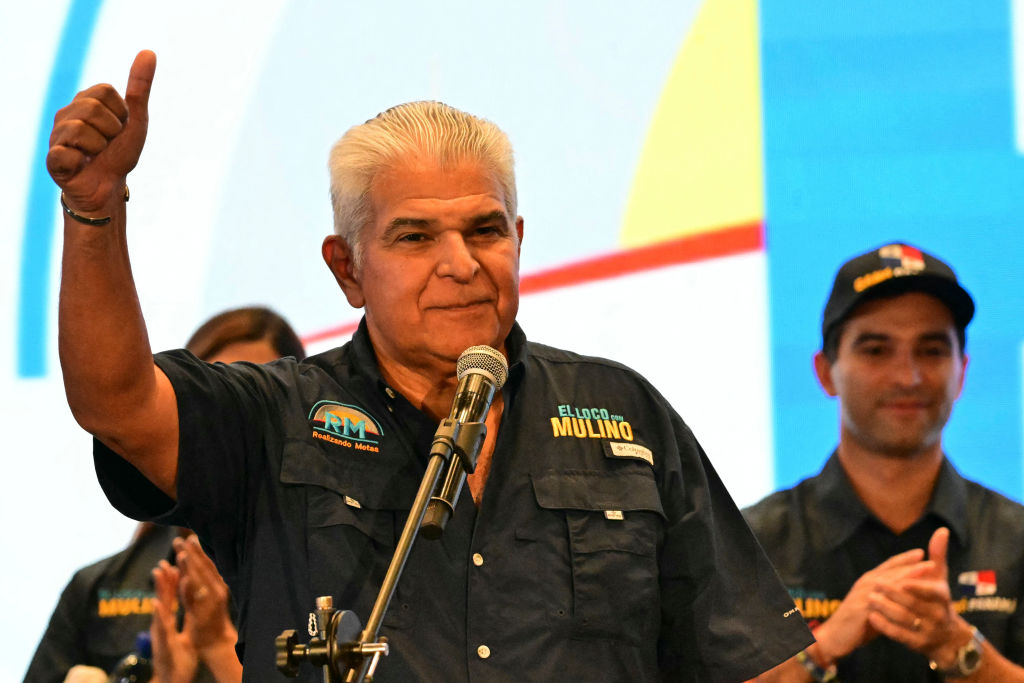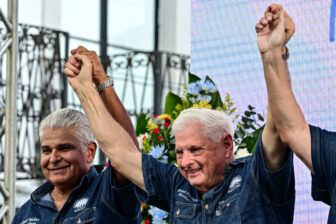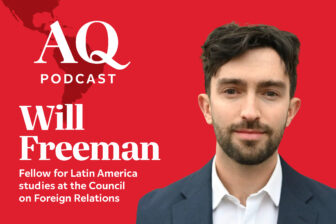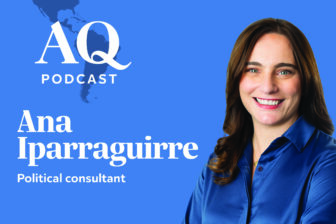José Raúl Mulino won Panama’s single-round presidential election on Sunday, May 5, with more than 34% of the vote, according to the nation’s electoral authority. The former security minister had been ex-President Ricardo Martinelli’s running mate until Martinelli was disqualified by the courts over a money laundering conviction and an impending 10-year prison sentence.
Mulino, who secured a nearly 10-point lead over his nearest opponent, is scheduled to take office on July 1 for a five-year term and will be tasked with addressing Panama’s weakened political institutions and rising social discontent amid increasing economic pressures. The second-place finisher, Ricardo Lombana, garnered almost 25% of more than 3 million votes cast. The election, one of the most convoluted in the country’s history, was marked by especially high voter turnout, at over 77%.
Daniel Zovatto, political analyst and global fellow at the Wilson Center
Mulino’s job will be challenging and complex. He’ll need to restart economic growth, create quality jobs, recover the country’s investment grade, and deal with the economic consequences of the closure of the Cobre Panamá mine. At the same time, Mulino has to respond to the water scarcity affecting the Panama Canal, resolve the insolvency crisis of the social security system, reduce public spending, and generate confidence to once again attract greater foreign investment.
Mulino will also have to reduce corruption and impunity significantly, get Panama off the financial watch lists that harm its reputation, strengthen institutions and the justice system, and deal with the migration problem. It is also vitally important that he tend to the social aspects of democracy, reduce inequality, and improve the quality of education to avoid new social convulsions.
This extremely long list of challenges—which is not exhaustive—comes accompanied by two central questions: What will Mulino do about the situation of former President Martinelli, currently avoiding prison under the protection of the Nicaraguan Embassy? And what political relationship will Mulino maintain with Martinelli?
He knows that he can’t solve Panama’s challenges alone. Mulino recognized this in his speech on election night. It will require dialogue, with a call for broad, inclusive, multisectoral participation. It will require him to know how to listen and how to create consensus to resolve the long list of challenges. It will require him to create a unity government with a diverse, excellent Cabinet, create alliances that guarantee governability, and address the public’s numerous demands.
Sebastián Fernández de Soto, Andes Region analyst at Control Risks
The polling proved accurate, and Mulino was elected president comfortably. Mulino ran on Martinelli’s platform, which proved a winning strategy as the Panamanian electorate remembered Martinelli’s administration positively, mainly for infrastructure development and economic growth.
The 71 seats in the country’s unicameral legislature were also up for election. The independent bloc appears to be the big winner, having secured the largest share of seats with 21, up from just 5 in the current legislature. Mulino’s Realizando Metas party won around 13 seats. This fractured National Assembly means that Mulino will likely seek to build a coalition of different parties to support his agenda and will have to build consensus for any proposed reforms.
Mulino will face significant challenges early in his administration, including falling economic projections due to the closure of the Cobre Panamá mine, the drought affecting the Panama Canal, the migrant crisis in the Darien Gap, rising insecurity, and the increasing deficit in Panama’s Caja de Seguro Social (CSS) pension system. The question of Martinelli, who remains in the Nicaraguan Embassy after being granted asylum there, will also be a vital issue early in Mulino’s tenure.
Mulino has promised to run a pro-business administration and drive increased foreign investment to reach 7% GDP growth. He has pledged to revitalize infrastructure development—including expanding the Panama City Metro, which Martinelli had also promised to do—and improve the country’s highway system. Mulino has also promised to expand access to drinkable water nationwide, a critical social concern.
Rodrigo Noriega, lawyer and columnist at La Prensa
Mulino’s administration will face grave economic challenges. The country’s public finances are in poor shape, with a social security system approaching insolvency and a $50 billion national debt that doubled under the current Laurentino Cortizo administration.
Mulino will likely negotiate to close the Cobre Panamá mine owned by Canadian mining firm First Quantum Minerals Limited, whose $10-billion copper mining contract was declared unconstitutional by Panama’s Supreme Court last year in the wake of the most intense protests the country has experienced in 35 years.
Mulino can be expected to try to help Martinelli avoid prison. And in the international arena, the president-elect is likely to be a staunch ally of the United States. He will not shy away from disputes with leftist governments in the region.






